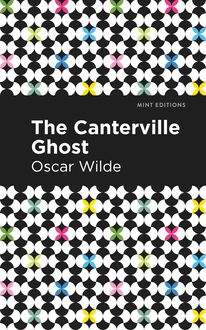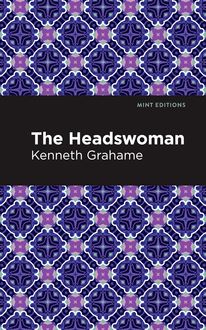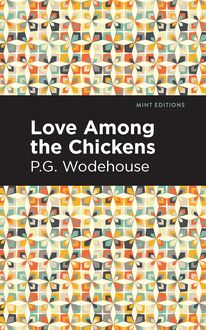-
 Univers
Univers
-
 Ebooks
Ebooks
-
 Livres audio
Livres audio
-
 Presse
Presse
-
 Podcasts
Podcasts
-
 BD
BD
-
 Documents
Documents
-
- Cours
- Révisions
- Ressources pédagogiques
- Sciences de l’éducation
- Manuels scolaires
- Langues
- Travaux de classe
- Annales de BEP
- Etudes supérieures
- Maternelle et primaire
- Fiches de lecture
- Orientation scolaire
- Méthodologie
- Corrigés de devoir
- Annales d’examens et concours
- Annales du bac
- Annales du brevet
- Rapports de stage
La lecture à portée de main
Vous pourrez modifier la taille du texte de cet ouvrage
Découvre YouScribe en t'inscrivant gratuitement
Je m'inscrisDécouvre YouScribe en t'inscrivant gratuitement
Je m'inscrisEn savoir plus
Vous pourrez modifier la taille du texte de cet ouvrage
En savoir plus

Description
The Cords of Vanity (1920) is a comic romance novel by James Branch Cabell. Set in a world where history and fantasy collide, where the laws of chivalry and honor continue to hold sway in postbellum South, The Cords of Vanity is included in a series of novels, essays, and poems known as the Biography of the Life of Manuel. A man of honor and tradition, Robert Townsend comes from a prominent family whose wealth and power once depended on its ownership of slaves. Raised in a fast-changing world, in which the old agrarian way of life is being replaced in response to growing industrialization, Robert spends much of his time weaving tall tales. In dreams only, he lives up to the ideals of his ancestors, for whom honor was the most important thing of all. Set in a fictionalized version of Richmond, The Cords of Vanity is a captivating, hilarious tale of chivalry and romance inspired by the author’s experiences as a young man raised in a family of Southern aristocrats. Originally written in 1909, before Cabell found success and infamy with the publication of Jurgen, A Comedy of Justice (1919), the novel is a fascinating glimpse into the mind of a young writer hungry for critical acclaim. Cabell’s work has long been described as escapist, his novels and stories derided as fantastic and obsessive recreations of a world lost long ago. To read The Cords of Vanity, however, is to understand that the issues therein—the struggle for power, the unspoken distance between men and women—were vastly important not only at the time of its publication, but in our own, divisive world. With a beautifully designed cover and professionally typeset manuscript, this edition of James Branch Cabell’s The Cords of Vanity is a classic of fantasy and romance reimagined for modern readers.
Sujets
Informations
| Publié par | Mint Editions |
| Date de parution | 03 août 2021 |
| Nombre de lectures | 0 |
| EAN13 | 9781513297309 |
| Langue | English |
Informations légales : prix de location à la page 0,0500€. Cette information est donnée uniquement à titre indicatif conformément à la législation en vigueur.
Extrait
The Cords of Vanity
A Comedy of Shirking
James Branch Cabell
The Cords of Vanity: A Comedy of Shirking was first published in 1909.
This edition published by Mint Editions 2021.
ISBN 9781513295800 | E-ISBN 9781513297309
Published by Mint Editions®
minteditionbooks.com
Publishing Director: Jennifer Newens
Design & Production: Rachel Lopez Metzger
Project Manager: Micaela Clark
Typesetting: Westchester Publishing Services
C ONTENTS A N I NTRODUCTION T HE P ROLOGUE T HE P ROLOGUE: W HICH D EALS WITH THE E SSENTIALS T HE C ORDS OF V ANITY 1. H E S ITS O UT A D ANCE 2. H E L OVES E XTENSIVELY 3. H E E ARNS A S TICK-PIN 4. H E T ALKS WITH C HARTERIS 5. H E R EVISITS F AIRHAVEN AND THE P LAY 6. H E C HATS O VER A H EDGE 7. H E G OES M AD IN A G ARDEN 8. H E D UELS WITH A S TUPID W OMAN 9. H E P UTS H IS T ONGUE IN H IS C HEEK 10. H E S AMPLES N EW E MOTIONS 11. H E P OSTURES A MONG C HIMNEY- P OTS 12. H E F ACES H IMSELF AND R EMEMBERS 13. H E B AITS U PON THE J OURNEY 14. H E P ARTICIPATES IN A B RAVE J EST 15. H E D ECIDES TO A MUSE H IMSELF 16. H E S EEKS FOR C OPY 17. H E P ROVIDES C OPY 18. H E S PENDS AN A FTERNOON IN A RDEN 19. H E P LAYS THE I MPROVIDENT F OOL 20. H E D INES O UT, I MPEDED BY S UPERSTITIONS 21. H E IS U RGED TO D ESERT H IS G ALLEY 22. H E C LEANS THE S LATE 23. H E R EVILES D ESTINY AND C LIMBS A W ALL 24. H E R ECONCILES S ENTIMENT AND R EASON 25. H E A DVANCES IN THE A TTACK ON S ELWOODE 26. H E A SSISTS IN THE D IVERSION OF B IRDS 27. H E C ALLS, AND C OUNSELS, AND C ONSIDERS 28. H E P ARTICIPATES IN S UNDRY C ONFIDENCES 29. H E A LLOWS THE M ERITS OF I MPERFECTION 30. H E G ILDS THE W EATHER- V ANE T HE E PILOGUE: W HICH S UGGESTS THAT S ECOND T HOUGHTS—
A N I NTRODUCTION
by Wilson Follett
M r. Cabell, in making ready this second or intended edition of T HE C ORDS O F V ANITY , performs an act of reclamation which is at the same time an act of fresh creation.
For the purely reclamatory aspect of what he has done, his reward (so far as that can consist in anything save the doing) must come from insignificantly few directions; so few indeed that he, with a wrily humorous exaggeration, affects to believe them singular. The author of this novel has been pleased to describe the author of this introduction as “the only known purchaser of the book” and, further, as “the other person to own a C ORDS O F V ANITY .” I could readily enough acquit myself, with good sound legal proofs, of any such singularity as stands charged in this soft impeachment—and that without appeal to The Cleveland Plain Dealer of eleven years ago (“slushy and disgusting”), or to The New York Post (“sterile and malodorous… worse than immoral—dull”), or to Ainslee’s Magazine (“inconsequent and rambling… rather nauseating at times”). These devotees of the adjective that hunts in pairs are hardly to be discussed, I suppose, in connection with any rewards except such as accrue to the possessors of a certain obtuseness, who always and infallibly reap at least the reward of not being hurt by what they do not know—or, for that matter, by what they do know. He who writes such a book as T HE C ORDS O F V ANITY is committing himself to the supremely irrational faith that this dullness is somehow not the ultimate arbiter; and for him the pronouncements of this dullness simply do not figure among either his rewards or his penalties. So, it is not exactly to these tributes of the press that one reverts in noting that T HE C ORDS O F V ANITY , on its publication eleven years ago, promptly became a book which there were—almost—none to praise and very few to love. After all, its author’s computation of that former audience of his—his actual individual voluntary readers of a decade ago—appears to be but slightly and pardonably exaggerated on the more modest side of the fact. If there were a Cabell Club of membership determined solely by the number of those who, already possessing T HE C ORDS O F V ANITY in its first edition, recognize it as the work of a serious artist of high achievement and higher capacity, I suspect that the smallness of that club would be in inordinate disproportion to everything but its selectness and its members’ pride in “belonging.”
Be that as it may, the economist-author, on the eve of his book’s emergence from the limbo of “out of print,” prefers that it come into its redemption carrying a foreword by someone who knew it without dislike in its former incarnation. No contingent liability, it seems, can dissuade Mr. Cabell from this preference. An author who once elected to precede a group of his best tales with an introduction eloquently setting forth reasons why the collection ought not to be published at all, is hardly to be deterred now by the mere inexpediency of hitching his star to a farm-wagon. His own graciously unreasonable insistence must be the excuse, such as it is, for the present introduction, such as it is. If there may be said to exist a sort of charter membership in Mr. Cabell’s audience, this document is to be construed as representing its very enthusiastic welcome to the later and vastly larger elective membership.
And if, weighed as such a welcome, it proves hopelessly inadequate, at least it provides a number of possible compensations by the way. For instance, that New York World critic who damned the book but praised its frontispiece of 1909, has now a uniquely pat opportunity to balance his ledger by praising the book and damning this foreword, which, more or less, replaces the frontispiece. Similarly, the more renowned critic and anthologist who so well knows the “originals” of the verses in From the Hidden Way , can now render poetically perfect justice to all who will care by perceiving that both the earlier edition of this book and the author of this foreword are but figments of Mr. Cabell’s slightly puckish invention.
But these pages must not be, like those which follow, a comedy of shirking. They will have flouted a plain duty unless they speak of the sense and the degree in which this novel, during the process of reclaiming it, has been actually recreated. Perhaps the matter can be packed most succinctly into the statement that Mr. Cabell’s hero has been subjected to such a process of growth as has made him commensurate in stature with the other two modern writers of Mr. Cabell’s invention. As The Cream of the Jest is essentially the book of Felix Kennaston and Beyond Life that of John Charteris, so T HE C ORDS O F V ANITY is essentially the book of Robert Etheridge Townsend. Now, this Townsend has accomplished a deal of growing since 1909. By this I do not mean that he is taken at a later period of his own imagined life, or that he fails to act consonantly with the extreme youth imputed to him: I mean that he is the creation of a more mature mind, a deeper philosophy, a more probing insight into the implications of things. A given youth of twenty-five will be very differently interpreted by an observer of thirty and by the same observer at forty, very much as a given era of the past will be understood differently by a single historian before and after certain cycles of his own social and political experience. The past never remains to us the same past; it grows up along with us; the physical facts may remain admittedly the same, but our understanding accents them differently, finds more in them at some points and less at others. So Robert Etheridge Townsend remains an example of that special temperament which, being unable to endure the contact of unhappiness, consistently shirks every responsibility that entails or threatens discomfort; and the truth about him, taking him as an example of just that temperament, is still inexorably told. But his weakness as a man becomes much more tolerable in this second version, because it is much more intimately and poignantly correlated with his strength as an artist. One is made to feel that he, like Charteris, may the better consummate in his art the auctorial virtues of distinction and clarity, beauty and symmetry, tenderness and truth and urbanity, precisely because his personal life is bereft of those virtues. Less than before, the accent is on the wastrel in Townsend; more than before, it is on the potential creator of beauty in him. The earlier readers will hardly count it as a fault that Mr. Cabell has contrived to make his novel, without detriment to any truth whatsoever, a far less unpleasant book. Sardonic it still is, by a necessary implication, but not wantonly, and with a mellowness. The irony, which at its harshest was capable of rasping the nerves, has become capable of wringing the heart.
Other reasons there are, too, for holding that T HE C ORDS O F V ANITY is certain to make its second appeal to a many times multiplied audience. Since divers momentous transactions of the years just gone, the whole world stands in a moral position extraordinarily well adapted to the comprehension of just such a comedy of shirking; and especially the world of thought has received a powerful impulsion toward the area long occupied by Mr. Cabell’s romantic pessimism. There is perhaps somewhat more demand for satire, or at least a growing toleration of it. Moreover, by sheer patience and reiteration Mr. Cabell has procured no little currency for some of his most characteristic ideas. Chivalry and gallantry, as he analyzes them, are concepts which play their part in the inevitable present re-editing of social and literary history. The Rivet in Grandfather’s Neck , The Cream of the Jest , and The Certain Hour have somewhat to say to the discriminating, even on other than purely aesthetic grounds; Beyond Life is on the threshold of its day as the Sartor Resartus of one side, the aesthetic side, of modernism; “ Of Jurgen eke they maken mencion”; and T HE C ORDS O F V ANITY is but the first of the earlier books to be reissued in the format of the uniform and accessible Intended Edition.
While T HE C ORDS O F V AN
-
 Univers
Univers
-
 Ebooks
Ebooks
-
 Livres audio
Livres audio
-
 Presse
Presse
-
 Podcasts
Podcasts
-
 BD
BD
-
 Documents
Documents
-
Jeunesse
-
Littérature
-
Ressources professionnelles
-
Santé et bien-être
-
Savoirs
-
Education
-
Loisirs et hobbies
-
Art, musique et cinéma
-
Actualité et débat de société
-
Jeunesse
-
Littérature
-
Ressources professionnelles
-
Santé et bien-être
-
Savoirs
-
Education
-
Loisirs et hobbies
-
Art, musique et cinéma
-
Actualité et débat de société
-
Actualités
-
Lifestyle
-
Presse jeunesse
-
Presse professionnelle
-
Pratique
-
Presse sportive
-
Presse internationale
-
Culture & Médias
-
Action et Aventures
-
Science-fiction et Fantasy
-
Société
-
Jeunesse
-
Littérature
-
Ressources professionnelles
-
Santé et bien-être
-
Savoirs
-
Education
-
Loisirs et hobbies
-
Art, musique et cinéma
-
Actualité et débat de société
- Cours
- Révisions
- Ressources pédagogiques
- Sciences de l’éducation
- Manuels scolaires
- Langues
- Travaux de classe
- Annales de BEP
- Etudes supérieures
- Maternelle et primaire
- Fiches de lecture
- Orientation scolaire
- Méthodologie
- Corrigés de devoir
- Annales d’examens et concours
- Annales du bac
- Annales du brevet
- Rapports de stage




















